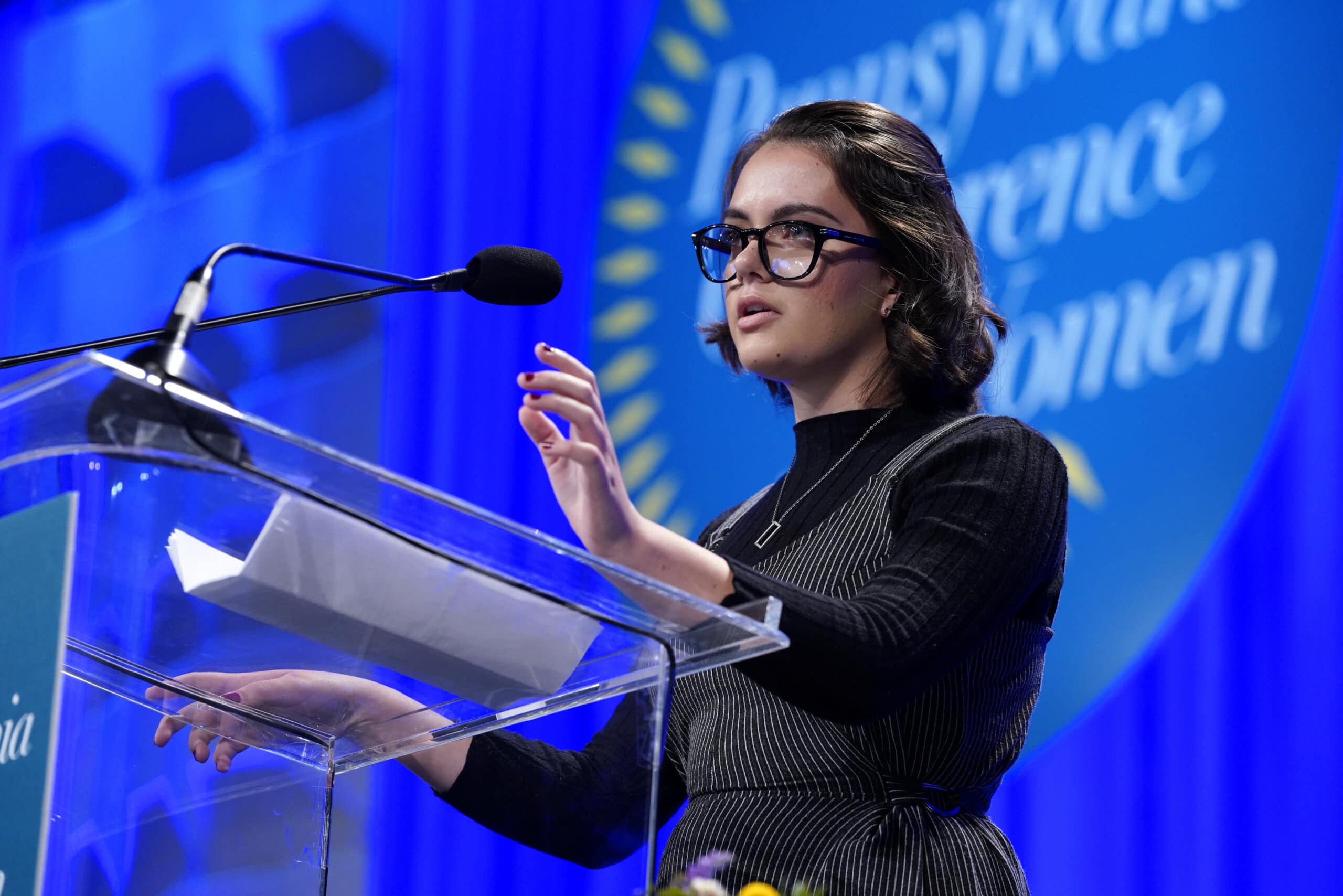Amanda Southworth Calls Out Bystanders
Sixteen-year-old app developer and activist Amanda Southworth took the stage at the 2018 Pennsylvania Conference for Women and captivated the room with a deeply personal story forged in the pain of her childhood anxiety and depression. With the backdrop of a national mental health crisis that affects 1 in 5 kids between the ages of 3 and 17, Southworth delivered this message: Suffering can be invisible, but it is not inevitable, and we can all do something about it.
“Action is not important,” she began, “it’s mandatory. The world will continue to hurt us until we join the effort to fix it—things won’t get better unless we make them. We have a responsibility not only as women but as people on this earth to do our best to improve things. If we have the ability to be fighting then we need to be—for the people that don’t have that ability.”
Recalling her years of victimization at the hands of bullies, Southworth recalls, “What hurt the worst was the people who saw what was happening and did nothing.” From the main stage of the Pennsylvania Convention Center, she issued a challenge.
“When bystanders do nothing, they make a choice. Choosing neutrality in the face of conflict because ‘it doesn’t affect you’ is how bullying is allowed to continue. If you see something wrong, fix it. If you see someone hurt, help them. if you don’t do something, who else will?”
Southworth described how her lifelong love/hate relationship with computers drove her to drop out of school and start a nonprofit app development organization at just 15 years old.
Bullied as a child growing up in the sometimes cruel world of social media, Southworth found that there was more than one way technology could hurt. She claims her politically moderate parents were radicalized by fake news on social media, which led to an increasingly abusive relationship. Southworth, who is gay, found herself at a young age being parented by someone who believed that the Holocaust was a hoax, and that homosexuality was wrong.
Ostracized by her peers and feeling unsafe in her own home, Southworth took refuge in her computer. She secretly downloaded a psychology textbook to learn strategies for coping with her anxiety, depression and her PTSD diagnosis. It was while caring for herself that she found herself inspired to look out for other kids like her. She began coding.
Anxiety Helper, Southworth’s first app, was released in 2015 when Southworth was just 13 years old. Tending to it consumed her days and added badly-needed direction to her life. Her past suffering gave her a special empathy for others. “Each user was another reason to stay alive,” she said. “I wanted other people like me to be safe.”
Her next app, Verena, created a virtual security network for LGBTQ+ users. “In 2016, all my gay friends watched the Pulse shooting,” she said. She was so motivated by concern for the safety of vulnerable communities that she ultimately quit school and founded Astra Labs, a nonprofit app development company. Upcoming apps will help connect activists and provide coping tools for individuals with schizophrenia and psychosis.
